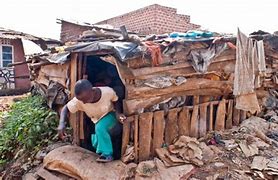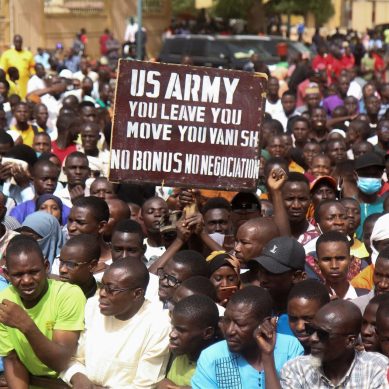
Ugandan government says it wants to promote internet use in the country, but while elsewhere internet use is free, in Uganda consumers of social media in continue paying the daily tax of 53 cents to access social media platforms such as Facebook, Google, WhatsApp and Skype (Halima Athumani, 2018).
Because government seems to be short of money, it may want to raise the tax further. By July 2018, said the finance ministry, it had collected about $1.8 million from social media and mobile money taxes. Many Ugandans are attempting to avoid the taxes by staying offline or using virtual private networks such as VPN. This may be called virtual evasion of taxes.
According to an article by Daniel Mwesigwa, 2021) on his blog, CIPESA titled “Uganda abandons social media tax but slaps new levy on internet data”, this is no doubt a contradiction of government’s efforts to promote social media, especially internet, in Uganda. The young people who are the main users of social media, particularly internet, began being overstrained by the levy on internet use with effect from July 1, 2021 when the government replaced the OTT tax with a direct 12 per cent levy on the net price of internet data, after which a value added tax (VAT) of 18 per cent started to apply.
We were lucky that our young people are docile. This levy, like the OTT before it, would have been enough to ignite unrest by internet users and the broad spectrum of social media users.
It is clear that through taxation, the rich in power are exploiting, dominating, controlling and oppressing the poor and needy. The message from power is that increase in taxes will help the government to repay loans and revitalise the economy. However, a sick economy is unlikely to be revitalised by hiking taxes. The capacity of the workers and businesses to pay will be greatly undermined and the economy will continue to deteriorated. Government will be unable to provide public services.
Despite this truism, government has chosen to impose even more multiple taxes, which is an abuse of human rights to make a small ethnic group to exploit, dominate, control and oppress the majority through inhumane taxation. The inhumanely taxed has no money left to invest in their families’ education and health, let alone leisure or touring of and connecting with other parts of the country.
It is enhancing ignorance of the country and other people as taxpayers are forced to stay in their localities and interact only amongst themselves. It is also helping the rulers to build a closed society at a time when we are desiring an open society.
One way the rich of Uganda are exploiting our poor and needy is by giving the poor and needy the hope that they’ll become rich too. This is illusionary richness. That hope a poor or needy person has makes him or her turn on other poor people, so that he or she can be rich. You see this all the time in your town, city village, workplace, and in poor neighbourhoods. Illusionary richness is, therefore, is as dangerous as it is cancerous. It can stupefy people.
After decades of being away from my village, Nawaka, in Ikumbya Subcounty of Luuka District in Busoga, I see at close range how the rich in government are concealing exploitation, domination, control and oppression of the poor through schemes such as Bonna Bagaggawale, Operation Wealth Creation, Myooga and Parish Development Model. Billions of public monies are poured into the schemes as money bonanzas ostensibly to develop a few poor while the rest of the communities are untargeted. Most of the money ends up being stolen by regime functionaries.
No meaningful development is taking place through money bonanzas to select people, often partisan, in the rural areas. It is a poverty project financed using public money obtained through taxation and borrowing from domestic and external markets, ostensibly on behalf of the poor.
As if this is not enough, in order to enhance the impoverishment of the poor and needy even further, government has allowed the proliferation payday lenders, who are just another of the many examples, of “businesses” that used to be illegal, being made “legitimate” by economic policy enacted by the wealthy class, for the benefit of the wealthy class itself and an increasingly exclusive small exogenous group, which has all the money invested in it by the rich individuals at the centre to exploit the periphery and impoverish the poor and the needy as much as possible (Don Emerson, cited in Quora) in the belief that it is easier to rule the poor and needy than to rule the rich.
Put another way, those who engaged in the criminal enterprise (loan sharking) when it was illegal, have the absolute same moral temperament as the “legitimate businessman” who engages in it now that it is no longer illegal to fleece desperate poor people with lending. They have no morals, no conscience, and ultimately, no humanity, so they sleep as well as any rich capitalist who swindles the public and gets away with it (Don Emerson in Quora). If there is anything that has entrenched impoverishment among the poor it is these loaners who are ethnically-oriented and scattered all over the country just like the nomadic pastoralists from afar are these.
Uganda is a case of institutionally-desired super inequality and mass poverty (e.g. Aspalter, 2022) among the various indigenous groups. There is need for serious research to investigate ethnic group-based dominance, its adaptive nature and how this is cultivating group-based inequality, mass poverty, exploitation, dominance, control and oppression through taxation and imposed societal organisation in Uganda (e.g. Felicia Pratto, Andrew L. Stewart and Fouad Bou Zeineddinea, 2013) based on group-based dominance and hierarchy.
A growing and expanding school of thought considers poverty as a form of oppression and a means of discriminating against a people. The more impoverishment of a people the more discrimination takes place and the more oppressed the people tend to be. Poverty is oppression. Wayward taxation confounds the problem, according to the school of thought.
We should note the four I’s of oppression and be keen on recognising them in Uganda:
- Ideological oppression. The dominant group holds this idea about itself. And, of course, the opposite qualities are attributed to the other group – stupid, lazy, weak, incompetent, worthless, less deserving, backward, abnormal, inferior, and so on.
- Institutional oppression. The idea that one group is better than another group and has the right to control the other gets embedded in the institutions of the society – the laws, the legal system and police practice, the education system and schools, hiring policies, public policies, housing development, media images, political power, etc. Institutional oppression does not have to be intentional. For example, if a policy unintentionally reinforces and creates new inequalities between privileged and non-privileged groups, it is considered institutional oppression.
- Interpersonal oppression. The idea that one group is better than another and has the right to control the other, which gets structured into institutions, gives permission and reinforcement for individual members of the dominant group to personally disrespect or mistreat individuals in the oppressed group. Interpersonal racism is what white people do to people of colour up close – the racist jokes, the stereotypes, the beatings and harassment, the threats, etc. Similarly, interpersonal sexism is what men do to women – the sexual abuse and harassment, the violence directed at women, the belittling or ignoring of women’s thinking, the sexist jokes, etc. Most people in the dominant group are not consciously oppressive. They have internalised the negative messages about other groups and consider their attitudes towards the other group quite normal.
- No reverse racism. The kind of oppressive attitudes and behaviours are backed up by the institutional arrangements. This helps to clarify the confusion around what some claim to be “reverse racism”.
The force of the police and the courts, or at least a gang of the discriminating group getting even, will come crashing down on those people of different associational choices. The oppressed group, therefore, does not have the power to enforce its prejudices, unlike the dominant group, especially if it holds the Sudan civil war: are Iranian drones helping the army gain ground?
We must emphasise the point that most people in the dominant group exhibiting dominance over others are not consciously oppressive. It is a very small clique within the group that is consciously oppressive. This is enhanced if the consciously oppressive have the instruments of power.
If poverty is institutionally sown, it is institutionalised so is discrimination being sown as well – discrimination against the majority poor and needy. The result may be poverty and discrimination transferred from one generation to another (i.e. generational poverty and discrimination). In this case if one speaks of development, transformation and progress, one is disguising what is really taking place: disguised genocide through institutionalised poverty. It goes without saying that a discriminated people will be denied social services; in this case, quality education and quality health.
In Uganda, Universal Primary Education (UPE) and Universal Secondary Education (USE) are the tools being used to deny our young people quality education. They will be institutionally treated as undesirables when they go through UPF and USE. They will constitute excess baggage of the education system but also excess labour that can easily be hired and fired or less channelled into domestic and external slave markets for the benefit of state functionaries who own labour institutions engaged in the modern slave trade endorsed by government, because it is reaping trillions from the evil trade.
There is need to encourage social services to adopt an anti-oppressive perspective in the development of services for people living in poverty, and propose some theoretical and organisational considerations to transform these services (e.g. Roni Strier and Sharon Binyamin, 2010). A government that cares for the masses will put social development and social services ahead of everything else in service of social development. Allocation of tax revenues in the budget will be geared towards maximising social justice in the distribution of services.
Unfortunately, President Tibuhaburwa Museveni has unequivocally stated, and is pursuing development, which puts infrastructural development first and social development last. Apparently, it is in infrastructural development where corruption, which the president has divinised, is most pronounced. Social development is experiencing less corruption because government has almost brought it to a standstill. The poor and needy have turned to traditional medicines to meet their health needs.
A class analysis of poverty argues that significant numbers of privileged people have a strong, positive material interest in maintaining poverty (e.g. Wright, 1995). Poverty can only be reduced in Uganda through popular mobilisation of pressure that challenges the power of the dominant classes, dominated by a small ethnic group in power. However, in Uganda popular pressure has been greatly restricted by militarisation of peace and security from top bottom.
My worry is that poverty in Uganda is being sown is such a way that the sowers desire that it is passed down from generation to generation (e.g. Health Care Access Now ,2023) beyond the rule of President Tibuhaburwa Museveni. The aim is to have poverty serve as a political resource at the centre of leadership and governance to perennially use it as a tool of exploitation, poverty generation, dominance, control and oppression the same way it was in Apartheid South Africa. Most likely, when a top National Resistance Movement (NRM) cadre, Kajabagu Karusooke, said that some Ugandans are biological substances, he was referring to the sufferers of super inequality and mass poverty during the last 38 years of President Tibuhaburwa Museveni – the poor and needy of Uganda.
The question is: who will liberate our poor and needy from politically-imposed super-inequality and mass poverty? Those who would – the elite – whose education consumed enormous amounts of public money, have been either silenced or sucked in as “political elite” to control them by giving them political goods and political resources, together with non-elite politicians. They have become criminal elite instead to enrich themselves and their families. The difference between the elite and non-elite politicians is now zero. Together they are serving power to sow seeds of generational poverty well in the future. The education of the elite has been rendered useless to the nation.
For God and My Country
- A Tell report / By Prof Oweyegha-Afunaduula, a former professor in the Department of Environmental Sciences of the Makerere University, Uganda











